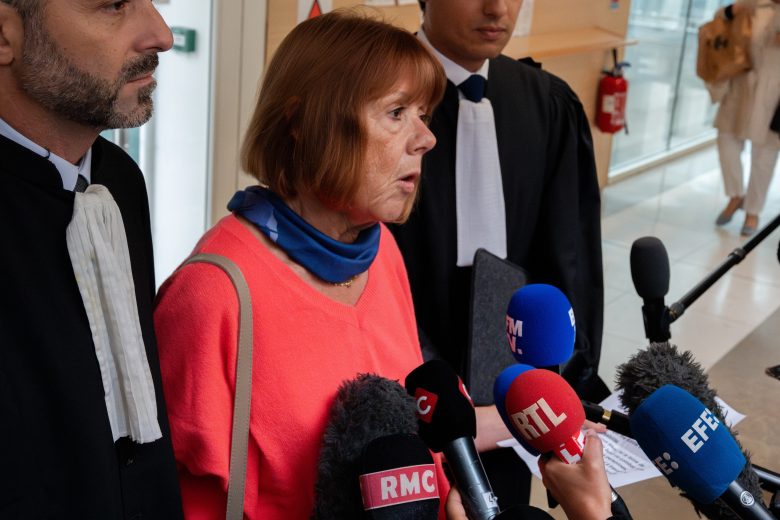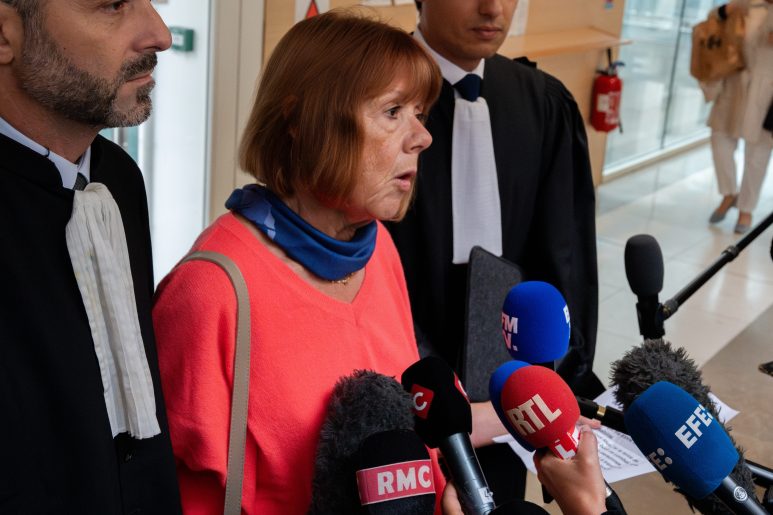By Jeremy Martin, freelance journalist
The trial of 51 men accused of the decade-long abuse of Gisèle Pélicot has sparked national outrage, but media reactions have revealed disturbing misunderstandings about rape and sexual predation. Coverage has often fixated on the “ordinary” appearance of the accused, exposing society’s failure to recognize the systemic nature of sexual violence.
(“I am a rapist” Cover of La Provence newspaper, September 18, 2024, Source: Twitter / @laprovence)

In southern France, 51 men are currently on trial for the abuse of a 72-year-old woman, Gisèle Pélicot, who was repeatedly raped over nearly a decade. Her husband at the time, Dominique Pélicot, drugged her into unconsciousness with anti-anxiety medication and offered her to strangers online for sex.
The case has shocked the nation, sparking widespread debate about gender relations, consent, and women’s safety. Between 2011 and 2020, Gisèle endured a sustained period of abuse, which was organized and filmed by her ex-husband. Dominique Pélicot has confessed to all charges and implicated the 50 co-defendants, asserting during the trial that they “knew everything.”
Since the trial began on September 2, reactions in the French media have been varied, with many highlighting outdated attitudes toward rape and the misunderstanding of sexual predation.
For instance, in a segment on women’s safety on national radio station RMC, a host made a disturbing remark, joking that better lighting and music in parking lots would “make for a less unpleasant rape.”
On CNEWS, journalist Charlotte d’Ornellas commented on the sexualized nature of today’s internet culture, filled with hardcore pornography, claiming that “respect for others is an obstacle to sexual relations,” while also simultaneously asserting that “patriarchy is over, honestly.”
Media watchdog group Arrêt sur Images criticized the simplistic narratives emerging in the coverage. Some media outlets, it noted, expressed shock that rapists aren’t the stereotypical “monsters” of society’s imagination. BFMTV ran the headline, “The case that shows rapists can be ‘Average Joes,’” pointing out the common misconception that sexual predators must look or behave in some distinctively sinister way.
Arrêt sur Images questioned the media’s fixation on the “normal” profiles of the accused. “What does it mean that the press emphasizes the ‘ordinary’ appearance of the defendants? Are we implying that other men accused of rape are abnormal?”
This gap between media narratives and the realities of sexual violence has underscored a persistent misunderstanding in French society. Contrary to popular belief, rapists and sexual predators are often known to their victims. In France, 51% of rape victims personally know their attacker, and 35% of assaults occur in the victim’s home, according to data from Insee.
The disconnect between perception and reality was further highlighted on TMC’s Quotidien news show. When asked how she could defend a person described as a “monster,” Johanna Luyssen, the lawyer for one of the defendants, responded, “We’re not talking about monsters, we’re talking about people, everyday people. Feminists and those working on these issues have long been trying to explain that these are systemic problems tied to rape culture and patriarchy.”
The case has forced France to confront an uncomfortable truth: the alleged perpetrators are not outliers but people who resemble those in our daily lives. Expressions of disbelief at their “normal” appearance suggest that a portion of society has yet to fully grasp the realities faced by survivors of sexual violence.
Mazan, the small town of 6,300 people where the Pélicots lived, has also been rocked by the case. Emblematic of the misapprehension, its mayor told the BBC, “It could have been far more serious… after all, nobody died.”
Sociologist Félix Lemaître, reflecting on the broader social implications, said, “In cases like this, we often see what’s called ‘otherization’ strategies, where society labels rapists as marginalized, insane, or foreign. This makes it easier to dismiss the problem as distant and unrelated to mainstream society. But the truth is that confronting these issues requires a deep and uncomfortable look at our collective attitudes toward masculinity and gender.” Gisèle Pélicot, choosing to hold the trial publicly rather than behind closed doors, sent a powerful message: “Shame must change sides,” she declared. After a recent court hearing in in Avignon, she urged other survivors to speak out, saying, “Look around you, you are not alone.”
Top pictures by Obatala-photography, https://www.shutterstock.com
Disclaimer:
The views and opinions expressed in this article are solely those of the author and do not reflect the official policy or position of the Media Diversity Institute. Any question or comment should be addressed to [email protected]


